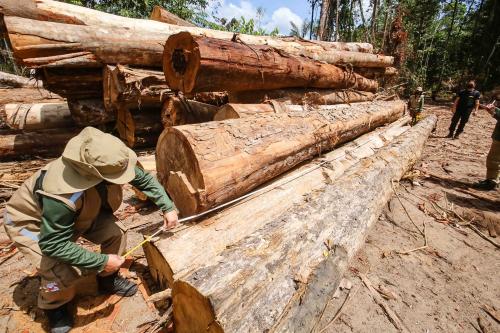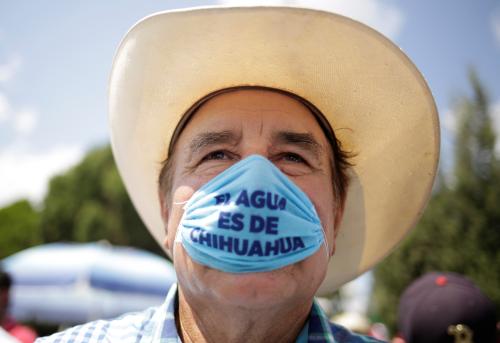2021
Far more extensive and robust conservation of natural habitats, smarter and more diligent monitoring of legal wildlife trade, and suppression of poaching and wildlife trafficking are necessary for preventing and minimizing the emergence and spread of zoonotic diseases. Yet the COVID-19 pandemic has also revealed how vulnerable conservation and income for local communities and protected areas are to downturns in tourism.
On January 14, the Brookings Institution’s Africa Security Initiative and Initiative on Nonstate Armed Actors hosted a panel discussion exploring the following questions: What have the effects of COVID-19 been on conservation in Africa and poaching and wildlife trafficking as well as legal wildlife trade? What effective response measures have been adopted or need to be developed going forward? And has the COVID-19 become an impetus for radically intensified protection of biodiversity and led to genuine transformation toward “One Health,” or has it become not only a tragedy, but also a wasted opportunity for biodiversity conservation and human security?
After their remarks, panelists took questions from the audience. Viewers submitted questions via email to [email protected] or Twitter using #NonstateArmedActors.
Agenda
-
January 14
-
Moderator
 Vanda Felbab-Brown Director - Initiative on Nonstate Armed Actors, Co-Director - Africa Security Initiative, Senior Fellow - Foreign Policy, Strobe Talbott Center for Security, Strategy, and Technology @VFelbabBrown
Vanda Felbab-Brown Director - Initiative on Nonstate Armed Actors, Co-Director - Africa Security Initiative, Senior Fellow - Foreign Policy, Strobe Talbott Center for Security, Strategy, and Technology @VFelbabBrownPanelist
 Victor K. Muposhi Associate Professor - Botswana University of Agriculture and Natural Resources @vkmuposhi
Victor K. Muposhi Associate Professor - Botswana University of Agriculture and Natural Resources @vkmuposhi Alastair Nelson Managing Director - Conservation Synergies, Senior Analyst - The Global Initiative Against Transnational Organized Crime @ConsSynergies
Alastair Nelson Managing Director - Conservation Synergies, Senior Analyst - The Global Initiative Against Transnational Organized Crime @ConsSynergies Catherine E. Semcer Research Fellow - Property and Environment Research Center, Research Fellow - The African Wildlife Economy Institute at Stellenbosch University @CatherineSemcer
Catherine E. Semcer Research Fellow - Property and Environment Research Center, Research Fellow - The African Wildlife Economy Institute at Stellenbosch University @CatherineSemcer
-


